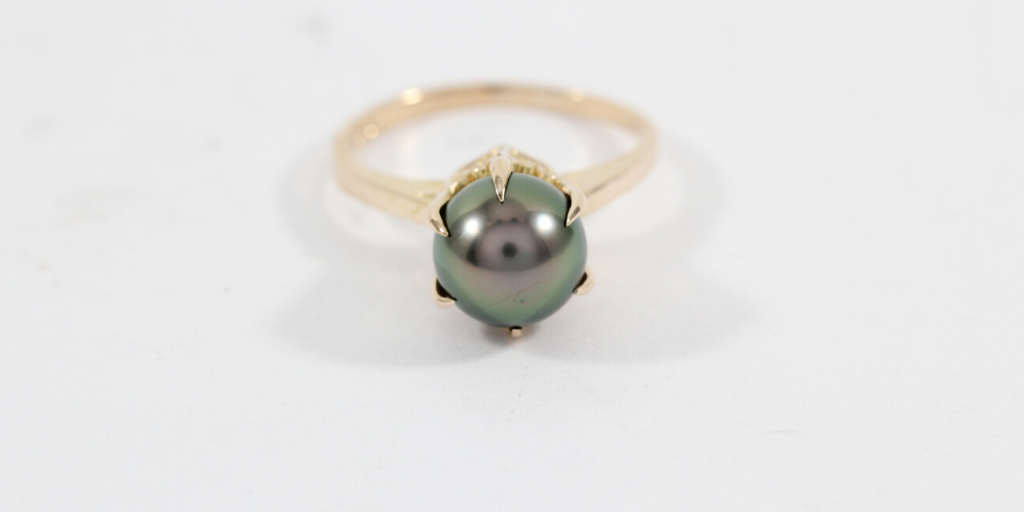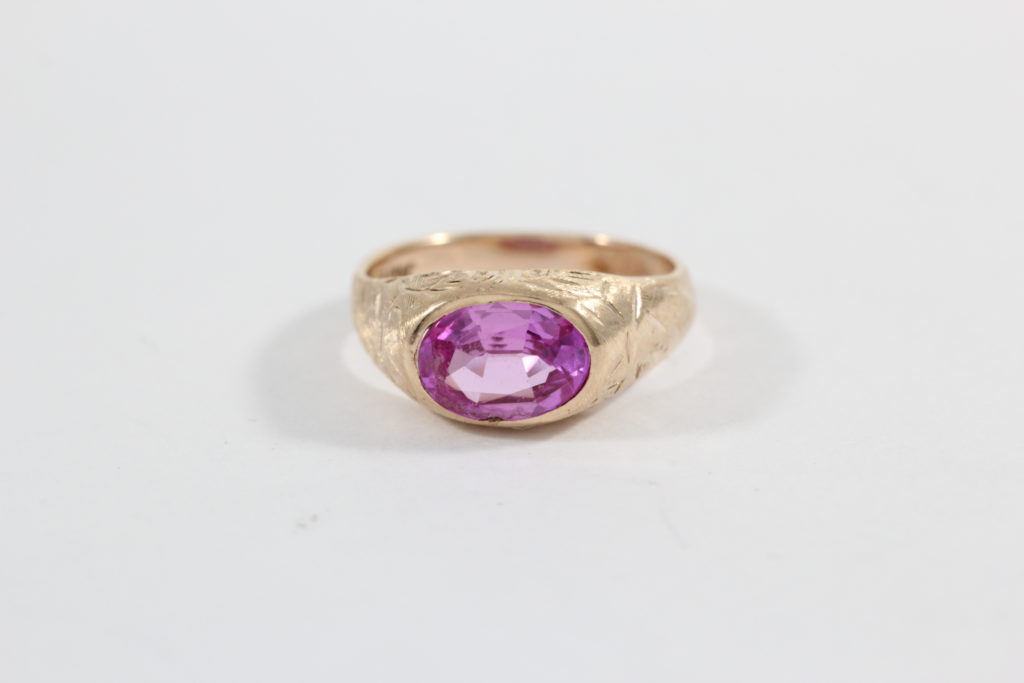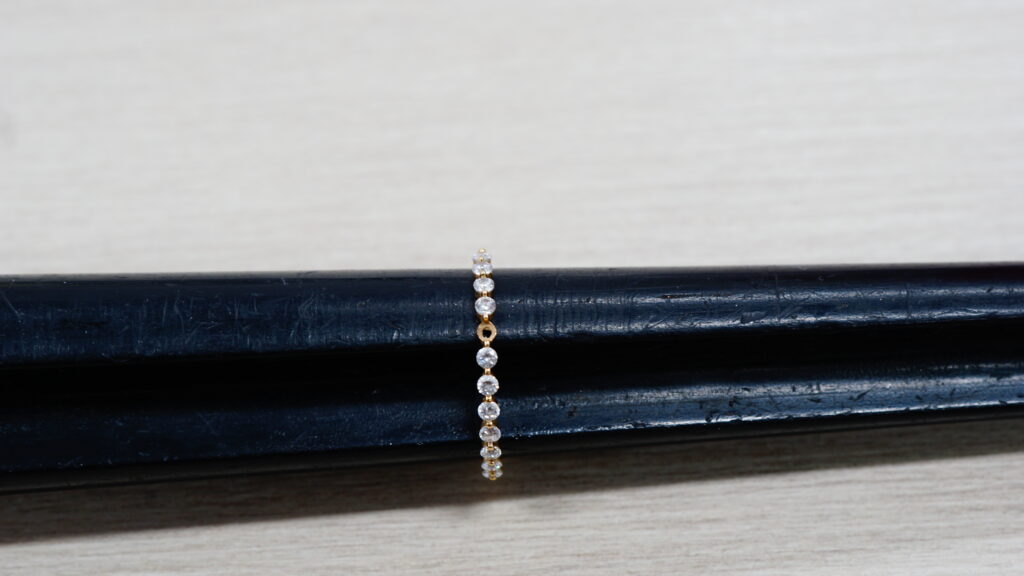Everything You Need to Know About Estate Sales to Acquire the Best Vintage Jewelry Pieces
Written by Anna Currell
October 23, 2024

Are you a thrifty jewelry shopper with an eye for great pieces? We don’t have to tell you how exciting it is to come across the perfect pieces. But how do you search for them, and where do you begin to look for these gorgeous, pre-loved pieces? In this article, we’ll walk you through everything you need to know about estate sales so that you can hunt for jewelry treasure. Let’s dive in!
What’s an Estate Sale?
An estate sale is basically a garage sale, or house sale, of all kinds of things — art, furniture, clothing, the list goes on. People host estate sales usually when the owners of a house have passed on, and they typically include items that weren’t designated to anyone specifically in their will. Estate sales usually have phenomenal jewelry and are great places to begin your search for the perfect jewelry.

The Difference Between Estate, Vintage, and Antique Jewelry
You may have heard the words, “estate,” “vintage,” and “antique” to describe old jewelry, but what’s the difference between them? They all actually define certain characteristics of age and belonging when it comes to jewelry pieces.
Estate jewelry refers to jewelry that has previously belonged to someone else, regardless of how old the jewelry is. Antique jewelry refers to jewelry that is 100 or more years old, and vintage jewelry is typically considered to be 20-100 years old. So you can find vintage estate jewelry or antique estate jewelry at these sales.
Sometimes you can find little hints about jewelry to tell how old a piece is, like designer stamps, but otherwise, a professional jeweler can help you determine the age, origin, and materials of whatever you find.

An antique Victorian hair pendant.
Your Estate Sale Hunting Checklist
So how do you begin your search for new-to-you jewelry pieces at an estate sale? Let’s walk through a checklist of step-by-step instructions.
- Find estate sales online or locally near you. Check all available online listings like EstateSales.net, EstateSales.org, Craigslist, and Facebook buy and sell groups for your area. Search terms like “[Your City] estate sales” or “upcoming estate auctions near me.” Sign up for email alerts from estate sale companies. Check your local newspaper's classifieds, community publications, and Nextdoor app listings too. If you’re dedicated, you don't have to limit yourself to your city — maybe you’re willing to travel 25-50 miles for promising-sounding sales.
- Do a little jewelry research. Learn about different jewelry eras, designers, materials, cuts, styles, and hallmarks. For example, know how to identify platinum versus white gold, or an Old European diamond versus a modern brilliant cut. Study vintage ads, makers' marks, and get familiar with costume jewelry brands like Trifari. The more you can train your eye, the better. Check out books from the library, take online classes, or follow social media accounts that share jewelry knowledge.
- Keep your eyes and mind open. Don't just beeline for the obvious jewelry cases and boxes. Carefully scan dressers, closets, bathrooms, and any other nooks for stashed jewelry. Check pockets of clothing and purses too. Fine and costume pieces are often intermingled, so don't disregard an unassuming box. Similarly, if you see a piece that looks a little worse for the wear, don’t write it off — it may just be in need of a clean or a quick repair, and might be your new favorite item.
- Arrive early. The best jewelry flies off the shelves quickly at estate sales, especially if the sale was well-advertised. Try to arrive at least one or two hours before the posted start time and bring a portable chair to wait in line if needed. Scout the scene when you arrive — if it's already a madhouse, you may need to temper expectations.
- Come prepared with supplies. Bring a quality loupe or jeweler's magnifying glass to inspect pieces closely. It’s a good idea to bring zipper cases, small boxes or bags to safely store purchases. Bring guides on diamond or gemstone types, karat stamps, makers' marks. It also doesn’t hurt to wear gloves to protect pieces that you handle — you never know how old or delicate these pieces may be!
- Pay attention to details. Once inside, closely examine all jewelry pieces. Check for karat stamps, hallmarks, signatures, gemstone quality/clarity, metal composition, any engravings and signs of repair/damage. Thoroughly use your loupe and any testing equipment you brought. Make notes on your smartphone about anything that needs further research.
- Ask questions. If you're unsure about any motifs, periods, materials etc. of a piece, politely ask the estate sale staff or homeowners present. They may have additional helpful backstories. But don't blindly trust anything you're told – verify later.
- Consider lots instead of single pieces. Estate sales often sell jewelry in pre-bundled “lots” rather than individually. Don't dismiss these lots – they can contain quality pieces mixed in with the costume. Inspect all lots closely and be ready to bid or negotiate on entire lots versus cherry-picking.
- Get your items appraised by a jeweler you trust. Once home, take your new finds to a reputable local jeweler or certified appraiser to get full evaluations on materials, condition, age, value, and authenticity. For very valuable pieces, consider sending them to certified appraisal services specializing in vintage/antique jewelry for thorough assessments.

An antique pink stone ring with decorative engravings.
The keys are being prepared with knowledge and tools, keeping an open yet skeptical eye, getting there extremely early, and knowing when to pull the trigger on promising buys that may need a second professional opinion afterwards. With practice, your ability to spot those diamond-in-the-rough vintage scores will get better and better.
Once you’ve found your new favorite pieces, be sure to take them to a jeweler you trust to learn more about them. Our expert jewelry appraisers accept mail-in pieces – just send in your jewelry, and our appraisers will provide you with a full report, including an appraisal document. Good luck on your search, and happy estate sale jewelry hunting!



One Comment on “Everything You Need to Know About Estate Sales to Acquire the Best Vintage Jewelry Pieces”